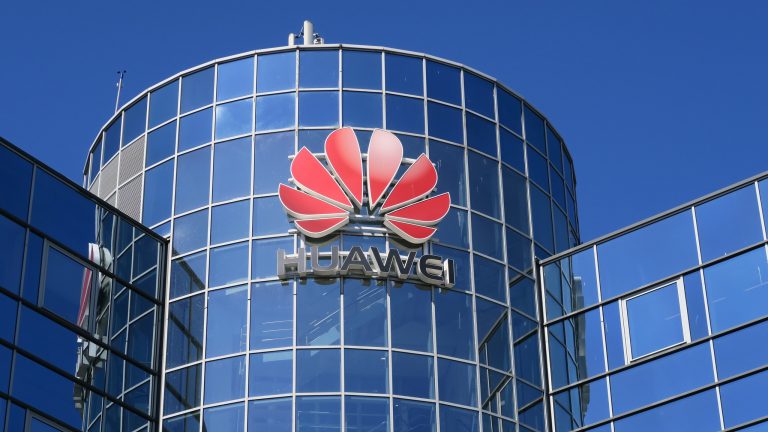 POLICY
POLICY
 POLICY
POLICY
 POLICY
POLICY
Huawei Technologies Co. Ltd. said today it’s facing a critical shortage of smartphone chips as a result of U.S. sanctions and will have to stop making new devices by mid-September if it doesn’t gain access to American suppliers.
The company, which is one of the world’s leading manufacturers of smartphones and telecommunications equipment, is at the center of a long-running dispute between the U.S. and China over technology and security.
The U.S. government placed the company on an “Entity List” in May 2019 that effectively prevents it from sourcing components from U.S. firms. That decision, the result of an executive order signed by President Donald Trump, also meant Huawei’s latest smartphones were unable to support certain Google applications or access the Google app store.
The ban was then extended in May this year when the U.S. Commerce Department issued an amended export rule that blocked shipments of semiconductors to the company in order to “strategically target Huawei’s acquisition of semiconductors that are the direct product of certain U.S. software and technology.”
That new rule was designed to prevent foreign semiconductor manufacturers that use American software and technology from shipping products to Huawei unless they first obtain a special license from the U.S. government. As a result, Taiwan Semiconductor Manufacturing Co., the world’s largest silicon manufacturer, halted orders for Huawei’s HiSilicon chip making business.
Huawei has designed the Kirin chips used in its high-end smartphones by itself, but production of the technology is handled by contractors such as TSMC that rely on U.S. technology.
“Unfortunately, in the second round of U.S. sanctions, our chip producers only accepted orders until May 15,” Richard Yu, president of Huawei’s consumer business, said at the China Info 100 industry conference on Friday, according to Associated Press. “Production will close on Sept. 15. This year may be the last generation of Huawei Kirin high-end chips.”
Yu said the sanctions mean that Huawei now has “no chips and no supply” for its smartphones. The news comes after Huawei reportedly surpassed Samsung Electronics Co. Ltd. to become the world’s top-selling smartphone brand for the first time, with 55.8 million devices sold in the second quarter, according to the research firm Canalys.
Yu said the success was thanks to increased demand in China and strong sales of high-end devices. However, with its chip supply now drying up, Yu said, the company will sell fewer smartphones this year than the 240 million devices it sold in 2019.
Huawei’s smartphone business isn’t totally crippled, since the company still has access to some older semiconductor technologies, analyst Patrick Moorhead of Moor Insights & Strategy told SiliconANGLE.
But the company will be at a “serious disadvantage” because it will only be able to use what Moorhead called “lagging-edge” technology processors. “That’s OK for entry-level smartphones, but it’s uncompetitive for midrange and premium smartphones,” he said. “I believe Huawei will lose market share until this issue is resolved.”
Constellation Research Inc.’s Holger Mueller said that he too believes Huawei will lose the number one spot in the smartphone market that its so recently obtained.
“This is a reminder that even the largest tech vendors work at the mercy and relations of their respective governing states,” Mueller said. “One can only hope that a solution will be found soon, as this in the interest of Huawei’s customers, its supply chain and the company itself.”
Huawei may still be saved by pressure from the American chipmaker Qualcomm Inc., which is currently lobbying U.S. policymakers makers for permission to sell its technology to the Chinese firm, the Wall Street Journal reported Saturday.
Qualcomm has asked for special permission it to sell chips to Huawei for use in its 5G phones, arguing that the ban is essentially handing that market to foreign competitors such as Samsung and Taiwan’s MediTek.
“If Qualcomm is subject to export licensing, but its foreign competitors are not, U.S. government policy will cause a rapid shift in 5G chipset market share in China and beyond,” the company said in a presentation to federal officials reviewed by the Journal. That would not only cripple American tech research but possibly threaten the country’s global leadership in 5G, it said, “an unacceptable outcome for U.S. interest.”
Other U.S. chipmakers, including Intel Corp., Micron Technology Inc., and Xilinx Inc., have also applied for similar licenses, the Journal said.
Support our mission to keep content open and free by engaging with theCUBE community. Join theCUBE’s Alumni Trust Network, where technology leaders connect, share intelligence and create opportunities.
Founded by tech visionaries John Furrier and Dave Vellante, SiliconANGLE Media has built a dynamic ecosystem of industry-leading digital media brands that reach 15+ million elite tech professionals. Our new proprietary theCUBE AI Video Cloud is breaking ground in audience interaction, leveraging theCUBEai.com neural network to help technology companies make data-driven decisions and stay at the forefront of industry conversations.